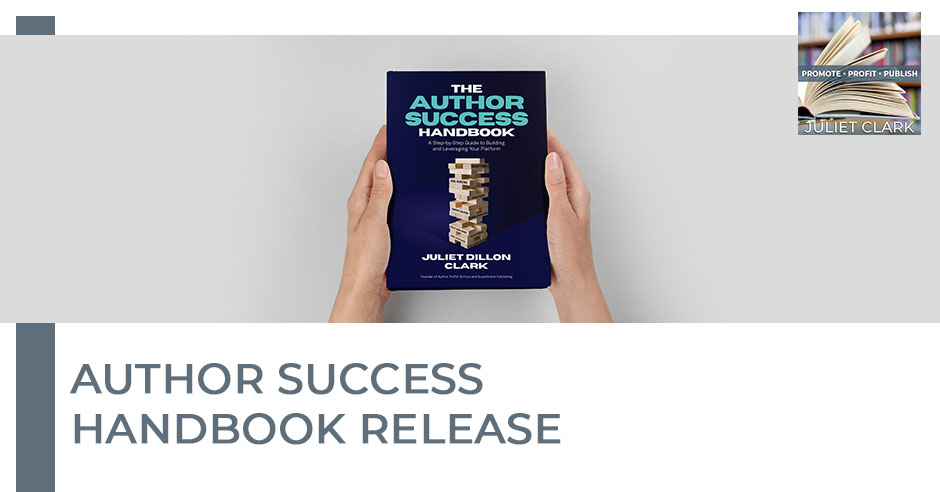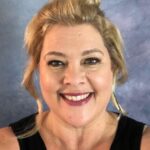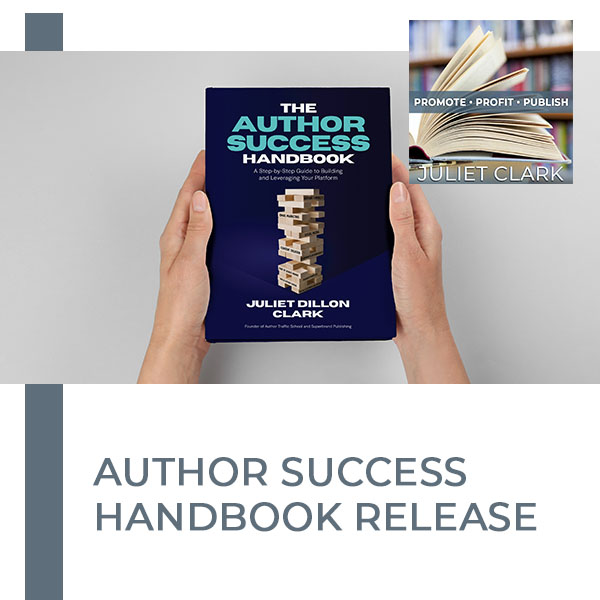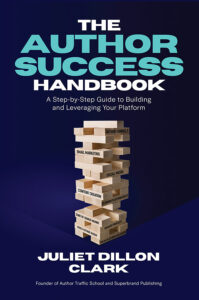
Authors should build a platform even before writing a book. That is the most essential part authors should start doing. It is how they will bring readers to read their book. In this episode, Kristy Johnson interviews Juliet Clark, the author of The Author Success Handbook, to guide authors on building and leveraging their platforms for a successful book launch. She shares the difference between Rumble from YouTube and why you should choose Rumble instead. Not only do authors need to identify their audience, but they should also identify their messaging and branding. Tune in to this episode today!
—
Watch the episode here
Listen to the podcast here
Author Success Handbook Release
Welcome to the show. In this episode, I’m your guest. I’m going to be interviewed by my friend and book developer, Kristy Boyd Johnson. I always call her Kris so I’ve got to formally give her the Kristy here. There is a new book coming out. For a lot of you guys, this is going to be helpful in building your author platform.
Before we get started, I have to say a couple of things. I want to remind you to go over to AuthorTrafficSchool.com. Check out our courses. If you don’t have a platform built, you don’t have anybody to sell to. That’s the bottom line. I can’t be any blunter. Don’t screw it up. Also, if you haven’t already, go grab your subscription to Breakthrough Author Magazine. You can find that at BreakthroughAuthorMagazine.com. Kris, you have a course coming up to promote as well. Tell us about it.
I do. I have two super fun workshop-style courses. It is an easy commitment. I have 1 for fiction and 1 for non-fiction. Both of them are different because they’re different styles of writing. It’s the foundational stuff that you need. If you don’t have the same place, it’s not going to match. You’re going to spin out on the writing of your book.
The non-fiction book workshop is on Saturday, August 5th, 2023. It’s from 8:00 to 12:00 noon Central Time. It is a no-brainer at $47. The fiction one is the same thing except it’s on Saturday, August 19th, 2023. Whichever one you’re writing, we’re going to make it super fun. You’re going to walk away with real, actual getting-into-your-book during the workshop. It is not a lot of blah in your face. We’re going to dive in and do it. You can go to CrushYourExpertBook.com and register right there.
—
I’m already signed up for the fiction workshop. I haven’t written a fiction novel in years. Poor Kris has heard about this book I want to write for three years. You wouldn’t believe owning a publishing company and reading all day, I haven’t been that inspired to get something out. Go over to CrushYourExpertBook.com and either sign up for the non-fiction or the fiction. My son is writing a fiction book as well so we’re going to get him signed up for the workshop. That’s it.
Kris is going to interview me about my new book. It’s called The Author Success Handbook: A Step-by-Step Guide to Building and Leveraging Your Platform. This is how you not only leverage it and build an audience but it is a step-by-step guide. It is the whole flow and format of where to start and how to put it out there. I’ll tell you that for some of them, it is step-by-step. I have screenshots. I tell you which funnels. Kris, take it over and interview me.
I’m so happy to talk to you about your forthcoming book. I have to say, because I work with you so extensively, being one of the leading publishers in the country, author platform building is the biggest obstacle that authors seem to have because they have that write it and they will come mentality. Is that what you see most of the time?
I see that so much. Especially in the last couple of years with the “expert field”, we find that people start businesses, especially since COVID. They’ve transitioned from this physical space to, “My business is going to be online.” They haven’t understood that to sell online, you need to have a digital platform. It’s not just to put it up and somebody will find it.
What this does is if you are a business owner and you’re writing that book to be able to increase your business, then you have to have that platform in place so you have someone to sell your book as a nurturing tool and then products, programs and services that you can move them onto. It is very important and one of the biggest obstacles when you get out there. You’re going to find that people aren’t going to find your book.
We’ve talked a lot about the problem that authors have of waiting until after they write their books. Can you talk about when’s the best time for people to start building their author platform or a more optimal time?
At least a year in advance. We have a book coming out. We’re recording this at the end of May 2023. It’s coming out. He started with us not too long ago. I bet if you ask him, everything is built but I don’t think he feels like he’s had time to learn how to use those tools we’ve created, reach out and build those audiences.
I would say a year in advance and here’s why. You are learning digital marketing. You have to have your audience and zone of genius nailed because you can’t do digital marketing by yourself when you first start. The learning curve is steep. You have to give yourself time to build, step-by-step, all of those tools and then be able to implement tools.
Here’s the one thing that people don’t understand and I had this happen as far back as 2013 or 2014, believe it or not. I was getting a lot of business from a writing coach in town who also published but people weren’t publishing with him and I’m not sure why. He was encouraging them to build a landing page and a list. They would build it but then the people didn’t know how to use it. Most of them weren’t on social media. You can build something and it sits there unless you utilize it. You have to learn how to build and utilize it.
You have to also know enough about the building process to go back and make some tweaks. Anybody who’s done digital marketing knows it never works smoothly the first time. You have to go back and get some kinks out. Maybe a little bit of languaging is wrong. Maybe the funnel’s not working or connecting the way that you’d like to see it. There is a lot to build there. Here’s the high spot of all of this. Whatever you learn how to build for that book, you’re going to be able to use it for your business as well. That’s because you’ve got a thorough understanding, which means you can drive more to your other bigger-ticket products and services.
You have to learn how to utilize your platform, but you must know enough about the building process to go back and make some tweaks. Digital marketing never works smoothly the first time. Share on XA book is still considered one of the better nurturing tools. It’s one of the best ones for nurturing an audience and bringing them into your realm of expertise.
You remember 2013, ‘14, ‘15 and ’16. Digital marketing was so new that people would click and buy something that was $2,000 like it was a no-brainer. They started to realize that whomever they were buying from wasn’t delivering the way they promised. There were so many problems that people started shying away from buying those big-ticket items without a relationship.
If you consider your book a relationship builder and a nurturing tool, you’re going to go much further in this process. Books are getting expensive because of the cost of paper. I went through this. I sent the royalty agreement out to a client who’s about to publish. The price of paper has gone up. That means the wholesale price of books has gone up. The distributors take more, which means decreased royalties for all of the authors.
If you can consider that $20 to $30 or maybe even $40 book as a nurturing tool, it’s a way for your audience or someone who may not be in your audience to have a book recommended. They read it, get to know you and see how you work and how your personality going to resonate. They are then able to follow more of your content into that space where they’re like, “I feel comfortable buying something that is $2,500, $3,500 or $10,000.” It is what I would consider a nurturing tool and a relationship-building tool.
That is the key right there. It is building relationships. You hit the nail on the head because the days of building a website and they’ll click in and click through are over. People want to know you and there’s a valid reason for that. They need to know that they’re working with someone legitimate. You go into that pretty well in your book, the importance of relationship building. When people start to work with you, are they even aware that they need to build relationships?
If they have seen me out talking someplace and they choose me and we have a lot of clients from LinkedIn, most of the time, they don’t realize it. When I mention it on the call, they’ll go, “I did feel like I knew you because of all the content I saw and all the value you provided.” We have a lot of people who come to us via referral. That is usually because I’ve built a relationship with the book developer who has built a relationship with this person already. When I begin to point that out, they realize that rarely do they come into it saying, “I have a relationship with you so that’s why I chose you.” You do have to keep in the back of your mind that you’re relationship-building.
I don’t think we addressed this enough in the world. The world has changed so much. Back in the ‘90s or the aughts, the 2000s, the internet was on the rise. People discovered self-publishing. It was a do-it-yourself kind of thing. What are some of the warning signs? When you’re looking for a publisher, there are a couple of significant red flags to look out for when you’re dealing with someone who’s not above board. Can you help us with that? One of them is about the ISBN.
Yes and no. With ISBNs, your publisher should be buying them. We buy a block but there are other red flags. When you interview someone, ask about the level of service because most of them, if you hand off your manuscript, you’re not going to get much. They’ll hand it back. They’ll charge you for corrections. The day you sign the contract, we start meeting weekly to keep you on track with your project. There are other red flags too. One of the biggest is are they keeping you right? There’s no way that you should pay someone to publish your book and then find out that they own the rights.
One of the things that bugged me that I’m going to be transparent about is I had a client a few years ago who was my age. She kept coming back and she’s an attorney and saying, “What happens if you die?” I was immediately like, “Don’t give me the evil eye and kill me,” but she had a good point. How do I continue? Is there a contingency plan? Who will pay my royalties?
Another thing too that I consider and I’m probably way out of bounds in the industry on this, is we don’t take any of the backend profits. That means we don’t take any of your royalties. If you are paying someone to produce your book and distribute your book, they should not be taking a piece of your royalties. This is not a traditional contract where I say, “I love your book. We’re going to format it. We’re going to cover design and promote it. We’re going to do everything on our dime and then you’re going to give us a piece of those royalties.” For a traditional publishing company, that is perfectly within the boundaries.
This was one of my peeves when I started this company. I was seeing everybody else take it. I consider it like this. You go to Office Depot and go over to the graphics counter and say, “Will you design me a business card?” They say, “Yes. The design will be $75.” You say, “That’s great.” They present you with the design and you say, “I like it. Can you please print me 100 cards?” They hand you your box after you’ve paid for the graphic design and the 100 cards to be printed and then they say, “We get 50% of anything you sell using these business cards.” You would be appalled but that’s what most self-publishers do.
In my mind, that ties directly into authors educating themselves about building their platform because the platform is everything. It’s so that we, as authors, own our audiences. We have to know how to do that, how to engage them, where we do this, how we do this and how we set it up so that we’re not at the mercy of the scammers out there because they are out there in every area and field.
I know that someone who’s writing a book tends to be absorbed in the writing of the book. That’s more of my area, the actual development of the book. They also need to be doing the platform building at the same time. What would be the first steps, like something small and actionable they could do right away that would help them get started and start building that confidence?
We start the whole process and this is in the book as well. I believe there’s a link to the program. It is a program called BuildYourAuthorAvatar.com. You can find it over there. It’s $97. We go through those steps in the book. It’s identifying your niche audience because you can’t write a book for everyone. I had someone who signed with us in March 2023.
I did two things. I gave them the Build Your Author Avatar program and I had Why They Buy, the book by Cheri Tree. I gave him both of those. He wanted to be published in June 2023. He came back to me and said, “Based on these, I need to go back to my book developer. We wrote this book for everyone. We did not niche it down the way it needed to be.” That’s where I would start.
What is unique about this program and the deep dive into your ideal client is you can build the psychographics and the demographics. That’s the first step. It is also getting into what are the fields that would follow. What are the educational levels that would follow? What is that age group? Where do these people like to hang out?
Even the deeper part of the program that helps you long-term is first of all, the dive into media. What sort of media are you consuming? I’m going to use Kevin Jones as an example of this because I’m so proud of him. Kevin was an NPR listener. Naturally, he’s LGBTQ. He thought his audience was in that realm. We had him go over and look at what I would consider NPR left-leaning media. We had him go over to the right-leaning media. He got to see the other side of that and map out, “Where can I get my foot in the door?”
If you don’t go across the different media spectrums, you’re going to pigeonhole yourself into places that may be harder to get into. By opening up that door to the other side of media, you’ve expanded whom you can speak to. Here’s why I say that. The beautiful late Lesley Michaels, when we went into the book and she started working with our media expert, she thought her book that was on women was more aimed towards that left-leaning audience. She had Jackie trying to get her on MSNBC, CNN, NPR and all of those left-leaning outlets.
If you don't go across the different media spectrums, you will pigeonhole yourself into places that may be harder to enter. Share on XWhat we found was there was so much competition in speaking on those topics in those left-leaning outlets that it was very hard to get Lesley in the door. There was one that we pitched that she was up against a huge writer at the New York Times. They were going to take this very well-known name. What was curious was how many inquiries we were getting in the book from right-leaning media. It was because they wanted to know, “What’s your spin on this? How do you feel about this? What’s your topic?” We were getting NTD and Newsmax. I don’t know if we ever got an inquiry from Fox but we were getting more of that right-leaning media that was interested in what she had to say about empowering women and different things like that. It’s very important.
The other thing that’s a part of that program is going out and looking at your competition. Most book developers don’t have you do that. You are not seeing the languaging those other people are using to be enticing. You’re not seeing what those influencers are selling. Remember, you want to take that book or nurture tool and incorporate it into what you’re selling next where you will make your money. Nobody ever makes a lot of money from books or very few people do. It’s very important to get a deep dive and know from day one, “What are my hashtags? What are my keywords? Where am I going with this?” Those are some of the benefits. That’s where we start.
We then move into why they buy. You want to understand where your audience is, why they buy, what sort of language you use, what are they like and what are they not like instead of writing that book to everybody. You are then moving into your zone of genius because you’re not going to do everything in the end. You will then be diving into building the assets that we’re going to build. That’s LinkedIn social media and content.
What are you going to do for your content? What is your social media going to be? What are your funnels going to look like? Do you know how to build a funnel? Do you know which kind of funnel you need? There are five main funnels that every author should be looking at as far as their book and their business. It does lead step-by-step and chapter-by-chapter into that.

Author Success Handbook: There are five main funnels every author should look at as far as their book and their business.
I’ve been through your book a couple of times because I got the privilege of editing it. Thank you. Every time I go through it, I’m like, “Wow, this little tidbit.” That’s a thing that every time you read something, you get something new out of it. It’s jam-packed with information. It’s not overwhelming because it is step-by-step. You can go at your pace and figure it out. Don’t get overwhelmed.
I suggest two main content distribution points for expert books in there. One is LinkedIn and I believe we cover how to set up a LinkedIn newsletter and then also video. We show how to set up your YouTube channel. That is step-by-step. We had one of our clients, Tracy, go through that process. Kevin did too. You’re going to want to be able to feed them content and mostly, everyone’s using videos.
We have Kevin on YouTube. We are leaning towards Rumble as well. I don’t have directions for Rumble but it’s something you should look into and think about because YouTube is a little more left-leaning. Rumble is a little more right-leaning. It doesn’t discount you to be on both because you have to be careful what you say on YouTube. If you say the wrong thing, they will delete you or make it so people can’t see. Rumble is free speech so they’re not going to delete you over there.

Author Success Handbook: YouTube will not let people see your content by saying something wrong. Rumble is free speech. They will not delete you over there.
Those are things that we don’t think about. I can’t even tell you. Some stupid number of books, both ghostwriting and editing and my books are over 40, 50 or something like that. You don’t think about that when you’re writing but you have to. You have to think, “Where are my people? Who am I writing for? How do I reach them? How do I bring them in?” Your book does that very well so kudos. You always tell me that it’s hard for you to write so I’m proud of you for doing it. You did it.
For those who don’t know me, I’m good at organization. I’m good at systems and processes. I’m good with people. I’m a good storyteller but I’m not a great writer. Kris has edited a lot of my books. It has been very much a challenge to keep my sarcastic voice.
It’s good when you do fiction though.
My fiction books are funny because I make fun of societal things that I see out there, which is probably why I haven’t written a fiction novel in almost fifteen years. Society went wacky on me. It’s hard to keep my voice. An important part of writing the book is making sure that it’s your voice because that’s how people see if they resonate with you. I have such a hard time working with someone with no sense of humor because life is funny to me. I’m very much a drool optimist. I make fun of a lot of things.
I love working with people who have a sense of humor. It’s so much more interesting.
I bring a different spin to the table. I very much think outside the box. To give an example of that, when I was growing up, my dad was good with his hands. He could take anything apart. He could put it back together. He did woodwork. I’ve got a potting bench downstairs that he built for me before he passed away. It was always funny as a child. My dad would look at me and the way I did things and he’d say, “You don’t have any common sense.” Parents say these things. I don’t think back in the ‘60s we realized the impact of what we were saying. I bounced along thinking I didn’t have any common sense.
I was in Corporate America. I got into those big meetings. My ideas would come out and people would go, “Why didn’t I think of that?” We would work backward, retrofitting it into what we needed. That was the point where I realized that common sense has different meanings. If you’re someone like my dad who worked with his hands, he would look visually and say, “I wouldn’t have done it that way.” I found that I have more common sense in my head. It’s getting that idea out of my head and onto a board because I can’t put anything together or take it apart. That gene didn’t happen.
That’s very kinesthetic. You’re very visual. Your book and I can’t wait, when’s it coming out?
My book will be out soon. It’s called The Author Success Handbook: A Step-by-Step Guide to Building and Leveraging Your Platform. You’ll be able to find it on Amazon, Barnes & Noble and Apple. It’s pretty much everywhere. I encourage you to go buy it. If you want, after you read it, go check out Author Traffic School. If you need some help, we have lots of products and services there. If you noticed, I told you to go see my nurture tool. If you need more help, go over to the place where I’ll make more money on that project. No greed is intended but I want to be able to practice what I preach here.
In the education world, my former life, we call that modeling. We model to our students what we want so that they can see what we want from them.
We call it an alignment when you’re a teacher as well. It’s practicing what you preach. I wrote a book on it because I have a platform built but I didn’t with my first book.
That’s what we’re trying to do. It is to help people avoid that. It becomes a problem over time because you sit there going, “Why isn’t anyone seeing my book?” We don’t want that. We want them to find you and start building a relationship so that you can build your business.
With my first book, I sold about 135 copies. When I cleaned out my grandmother’s house after she passed away, she bought them all. I have a lot of books that I have to figure out what to do with.
That would be something we would like to avoid as well, finding a closet full of our own books.
Thank you for interviewing me. You can go buy the book, The Author Success Handbook by Juliet Dillon Clark. It will be available on July 25th, 2023.
Congratulations again.
Thank you.
Important Links
- Kristy Boyd Johnson
- AuthorTrafficSchool.com
- BreakthroughAuthorMagazine.com
- CrushYourExpertBook.com
- The Author Success Handbook: A Step-by-Step Guide to Building and Leveraging Your Platform
- BuildYourAuthorAvatar.com
- Why They Buy
About Kristy Boyd Johnson
 Kristy Boyd Johnson is an award-winning children’s author, and has ghostwritten over 30 books for entrepreneurs over the years. She is a sought-after developmental editor and transformational book coach. She recently launched Starseed Journey Retreats because she can’t imagine anything better than being a beautiful location with beautiful people who want to reconnect with their deepest selves through writing.
Kristy Boyd Johnson is an award-winning children’s author, and has ghostwritten over 30 books for entrepreneurs over the years. She is a sought-after developmental editor and transformational book coach. She recently launched Starseed Journey Retreats because she can’t imagine anything better than being a beautiful location with beautiful people who want to reconnect with their deepest selves through writing.










Leave A Comment